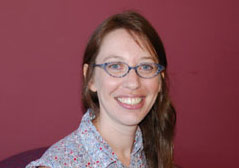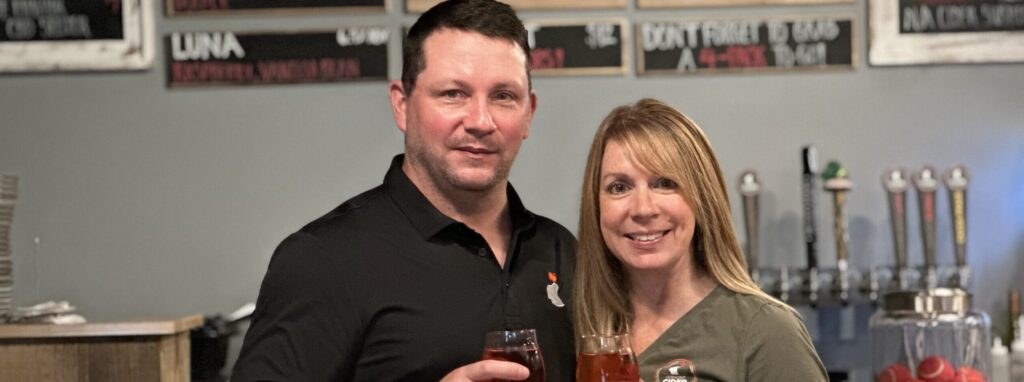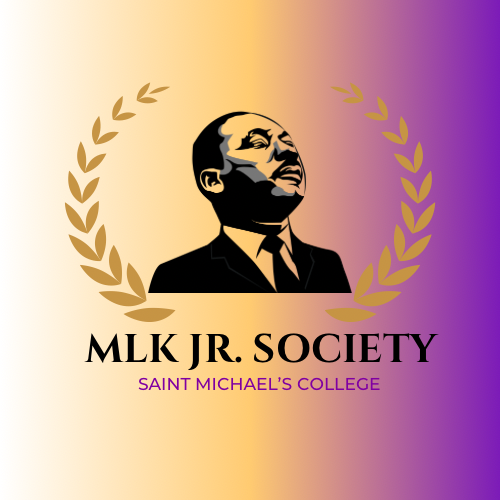Senegalese films offer fresh French-culture experience

The flag of Senegal is above. Below left is Professor Laurence Clerfeuille.
Each year, members from both inside and outside the Saint Michael’s community join French Professor Laurence Clerfeuille in the Cheray 101 lecture hall to experience French culture through a series of powerful and carefully selected films. Different from the France and Quebec Film Festivals that have been tradition in the past, however, this year’s festival is focused on Senegalese cinema—something that Clerfeuille has been waiting to introduce to the Saint Michael’s community for a while now.
“It felt like the perfect time,” Clerfeuille said, explaining that the choice to organize the film festival came in conjunction with her teaching a two-credit course about Senegalese culture which will culminate in a study trip to Senegal this December. The festival works to complement the course and further prepare students for the trip while providing those outside Clerfeuille’s classroom a window through which they may better understand Senegalese culture.
 “I think that films are very accessible. Not everyone is going to take the time to read a book, but watching a film in two hours, you really get to see how people live,” said Clerfeuille, who has chosen four films that, though very different, work together to present a comprehensive view of life in Senegal. From the urban and rural settings, variety of languages, and even multitude of countries seen throughout the films, audience members will come to understand the complexity of Senegalese culture. Clerfeuille and other authorities on African culture will formally introduce each film, providing viewers context and inspiring greater understanding and appreciation of the subject matter. “Africa is as global as we say our world is. The focus is not simply on where they live, but extends to other countries as well,” Clerfeuille said.
“I think that films are very accessible. Not everyone is going to take the time to read a book, but watching a film in two hours, you really get to see how people live,” said Clerfeuille, who has chosen four films that, though very different, work together to present a comprehensive view of life in Senegal. From the urban and rural settings, variety of languages, and even multitude of countries seen throughout the films, audience members will come to understand the complexity of Senegalese culture. Clerfeuille and other authorities on African culture will formally introduce each film, providing viewers context and inspiring greater understanding and appreciation of the subject matter. “Africa is as global as we say our world is. The focus is not simply on where they live, but extends to other countries as well,” Clerfeuille said.
Showing all works from well-renown Senegalese filmmakers—one of them considered to be “the father of African film”—Clerfeuille chose the masterminds behind the films just as intentionally as she did their content. In fact, students on the study trip will be meeting the director of the third film, Moussa Sene Absa, when they visit Dakar, his place of residence. Clerfeuille fondly remembers going to see his film in France for the first time, not expecting what the future would hold: “I never thought that day going to the theater that I would not only go to Senegal myself, but also that I would be a French professor taking a group of students to meet the filmmaker!” she said.
The last event of the Senegalese Film Festival is not a film, but a speaker. A Senegalese filmmaker and activist, Moussa Bocoum will be coming to campus on November 11 to talk about the “political dimension of films in Africa and how they are used to defend human rights,” as well as the ways in which filmmakers use their media to both denounce and highlight African tradition.
“Not all African traditions are as we may think; some of them we’d consider democratic,” Clerfeuille said, reflecting on the American stereotypes that often surround African culture and the need to displace them. “I don’t want people to view Africa as simply a place of poverty and oppression. There are Africans producing works of art, Africans trying to fix problems for themselves who don’t need foreign aid.”
“We talk a lot at St. Mike’s about helping others and wanting to make the world a better place. But in order to do that, we have to know the world ourselves,” said Clerfeuille. “Whether they be from Senegal or the U.S. or elsewhere, powerful films are inspiring. I hope that seeing how other people live their lives will inspire the St. Mike’s community.”
The next film in the series is Djibril Diop Mambéty’s Hyenes/Hyenas, which will be shown on Wednesday, November 6. All films are You Count events and will be held in Cheray 101 at 7 p.m.





